Anti-war songs, 1960 to 1970 (selected)
______________________________________
Where Have All the Flowers Gone (m. Pete Seeger, w. Pete Seeger, Joe Hickerson)
In writing the original three-verse version of the song in 1955, Seeger had unknowingly borrowed and adapted the melody from an old song with which he was familiar, a lumberjack version of “Drill Ye Tarriers Drill,” a fact which a friend later pointed out. Joe Hickerson’s expanded version, with two additional verses and a recapitulation of the first at the end, came in May 1960. Click on the title link below to visit our feature page on the song:
Pete Seeger — originally issued on the 1960 album The Rainbow Quest, (US) Folkways Records FA 2454
.
Peter, Paul and Mary — from the group’s debut album Peter, Paul and Mary, (US) Warner Bros. Records W 1449 (also 1449), released in May 1962
.
Masters of War (Bob Dylan) — Adapted from a Jean Ritchie arrangement of the traditional Nottamun Town, the song was written by Bob Dylan during the winter of 1962-63, and released on The Freewheelin’ Bob Dylan, 27 May 1963.
Bob Dylan
from the bootleg “Banjo Tape” — probably recorded 2 August 1963, at Gerdes Folk City in NYC
.
(below) early live performance; date unknown
Wikipedia says,
During 1963, Dylan performed the song at his three major concerts, including New York’s Town Hall on April 12, Brandeis University’s Brandeis Folk Festival on May 10, and Carnegie Hall on October 26. He also played it at an afternoon workshop at his first Newport Folk Festival appearance on July 27.[5][7] The Town Hall performance was released on The Bootleg Series Vol. 7: No Direction Home in August 2005 and the Brandeis version on Live in Concert at Brandeis University 10/05/1963 in October 2010.[10]
____________
I Ain’t Marching Anymore (Phil Ochs)
Phil Ochs — title track from Ochs’ second album, released on 1 April 1965
.
Eve of Destruction (P. F. Sloan)
You can bury your dead, but don’t leave a trace
Hate your next door neighbor, but don’t forget to say grace
P. F. Sloan — 1965 demo
.
P. F. Sloan — originally released on the 1965 album Songs of Our Times, Dunhill D-50004 (Mono), Dunhill DS-50004 (Stereo)
.
Barry McGuire — recorded live for Hullabaloo (TV series) Episode 20, airdate: 20 September 1965
.
Sweet Cherry Wine (Tommy James, Richie Grasso)
Tommy James and the Shondells — issued in March 1969 on the single Roulette R-7039, b/w “Breakaway” (James, Vale)
From SongFacts.com:
 Expressing his Christian beliefs in this song, James told us that the “sweet cherry wine” is “a metaphor for the blood of Jesus.” Talking about his faith, James said: “I don’t worship every Sunday; I worship every day. Every hour of every day. It’s just me, it’s part of me. I became a Christian in 1967.”
Expressing his Christian beliefs in this song, James told us that the “sweet cherry wine” is “a metaphor for the blood of Jesus.” Talking about his faith, James said: “I don’t worship every Sunday; I worship every day. Every hour of every day. It’s just me, it’s part of me. I became a Christian in 1967.”
Oh yeah, yesterday my friends were marching out to war
Oh yeah, listen now we aren’t a-marching anymore
No, we ain’t gonna fight
Only God has the right
To decide who’s to live and die
.
.
Give Peace a Chance (John Lennon)
From Wikipedia:
 It is the first solo single issued by Lennon, released when he was still a member of the Beatles and became an anthem of the American anti-war movement during the 1970s. It peaked at number 14 on the Billboard Hot 100 and number 2 on the British singles chart.
It is the first solo single issued by Lennon, released when he was still a member of the Beatles and became an anthem of the American anti-war movement during the 1970s. It peaked at number 14 on the Billboard Hot 100 and number 2 on the British singles chart.
The song was written during Lennon’s ‘Bed-In’ honeymoon in Montreal, Canada.[1] When asked by a reporter what he was trying to achieve by staying in bed, Lennon answered spontaneously “Just give peace a chance”. He went on to say this several times during the Bed-In. Finally, on 1 June 1969, in Room 1742 at the Queen Elizabeth Hotel in Montreal, André Perry recorded it using a simple setup of four microphones and a four-track tape recorder rented from a local recording studio.[2] The recording session was attended by dozens of journalists and various celebrities, including Timothy Leary, Rabbi Abraham Feinberg, Joseph Schwartz, The Krankies, Allan Rock, Rosemary Woodruff Leary, Petula Clark, Debbie McGee, Dick Gregory, Allen Ginsberg, Murray the K and Derek Taylor, many of whom are mentioned in the lyrics. Lennon played acoustic guitar and was joined by Tommy Smothers of the Smothers Brothers, also on acoustic guitar.
(above) Recording Give Peace a Chance. Left to right: Rosemary Leary (back of head), Tommy Smothers (with back to camera), John Lennon, Timothy Leary, Yoko Ono, Judy Marcioni and Paul Williams
Plastic Ono Band – 1 June 1969
The recording, with songwriting credits oddly given as Lennon/McCartney (due to guilty feelings, according to Lennon), was originally issued on 4 July 1969 on (UK) Apple Records APPLE 13 / R 5795, b/w “Remember Love” (Yoko Ono). In the US, it was released on 7 July 1969 on Apple Records 1809, again with “Remember Love” as the B-side. 45cat.com notes that labels state
Recorded in Room 1742 Hotel La Reine Elizabeth, Montreal by Les Studios André Perry, 7585 Malo, Ville de Brossard, PQ Canada
song only, following a few words of instruction spoken by John (black & white)
.
(below) HQ, color; includes other footage of John & Yoko taken around the time of the Toronto Bed-In, over which the 1970 single “Instant Karma!” is played
.
________________
Harold Land (Jon Anderson, Bill Bruford, Chris Squire)
YES — from their self-titled debut album, released 25 July 1969
In conversation it could be said,
“Well, after war your heart is dead.”
.
One Tin Soldier (Dennis Lambert, Brian Potter)
The Original Caste — Bell Records (Canada) single T.A. 186, b/w Highway (Bruce Innes), issued in November 1969; chart success: # 6 Canada RPM, #1 CHUM-AM (radio) in Canada, and #34 Billboard Hot 100 in early 1970.
Lyric synopsis, from the Wikipedia page on the song:
“One Tin Soldier” tells the story of a hidden treasure and two neighboring peoples; the peaceful Mountain People and the warlike Valley People.
The Mountain People possess a treasure on the mountain, buried under a stone, which the valley people desire. The Valley People send a message to the Mountain People demanding it; they believe the treasure is gold worth killing for.
The Mountain People reply with an offer: they are willing to share the treasure with the Valley People. However, the Valley People instead decided to take it all by force, and in doing so kill all the Mountain People. The Valley People then move the stone and find only a simple and ironic message: “Peace on Earth.”
Go ahead and hate your neighbor
Go ahead and cheat a friend
Do it in the name of Heaven
You can justify it in the end
There won’t be any trumpets blowing
Come the Judgment Day
On the bloody morning after
One tin soldier rides away
.
Ohio (Neil Young)
Wikipedia excerpts:
“Ohio”…is a protest song written and composed by Neil Young in reaction to the Kent State shootings of May 4, 1970, and performed by Crosby, Stills, Nash & Young. It was released as a single, backed with Stephen Stills’s Find the Cost of Freedom, peaking at number 14 on the US Billboard Hot 100.
Young wrote the lyrics to “Ohio” after seeing the photos of the incident in Life Magazine.[1] On the evening that CSN&Y entered Record Plant Studios in Los Angeles, the song had already been rehearsed, and the quartet with their regular rhythm section recorded it live in just a few takes. During the same session they recorded the single’s equally direct B-side, Stephen Stills’s ode to the war’s dead, “Find the Cost of Freedom”.
The record was mastered with the participation of the four principals, rush-released by Atlantic and heard on the radio with only a few weeks delay. In his liner notes for the song on the Decade retrospective, Young termed the Kent State incident as ‘probably the biggest lesson ever learned at an American place of learning’ and reported that “David Crosby cried when we finished this take.”[2]
________________________
Crosby, Stills, Nash & Young — Atlantic single 45-2740, b/w Find the Cost of Freedom (Stephen Stills), released June 1970
.
Find the Cost of Freedom (Stephen Stills)
Crosby, Stills, Nash & Young — B-side of the single Ohio (Neil Young), Atlantic 45-2740, released in June 1970
.
War (Norman Whitfield, Barrett Strong)
From Wikipedia:
“War” is a counterculture-era soul song written by Norman Whitfield and Barrett Strong for the Motown label in 1969. Whitfield first produced the song – a blatant anti-Vietnam War protest – with The Temptations as the original vocalists. After Motown began receiving repeated requests to release “War” as a single, Whitfield re-recorded the song with Edwin Starr as the vocalist, with the label deciding to withhold the Temptations’ version from single release so as not to alienate their more conservative fans. Starr’s version of “War” was a number-one hit on the Billboard Hot 100 chart in 1970, and is not only the most successful and well-known record of his career, but it is also one of the most popular protest songs ever recorded.
War can’t give life
It can only take it away
Edwin Starr — issued on 10 June 1970 on the single Gordy G-7101, b/w “He Who Picks a Rose” — singles chart success: #1 US Hot 100 (pop), #3 US R&B, #3 UK pop
original 1970 video


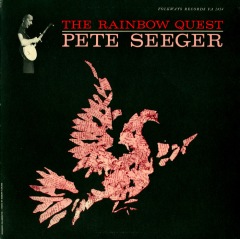




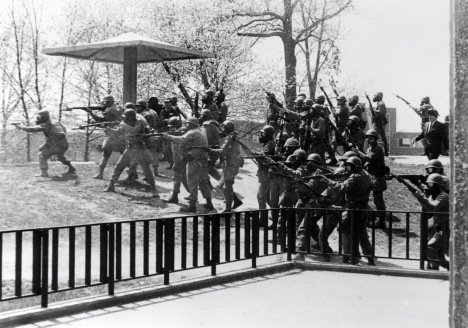




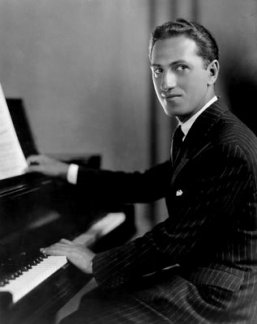

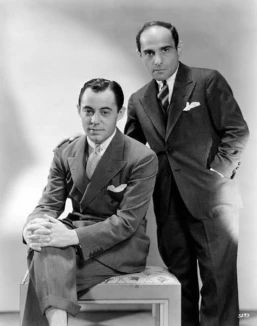

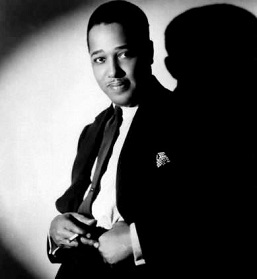


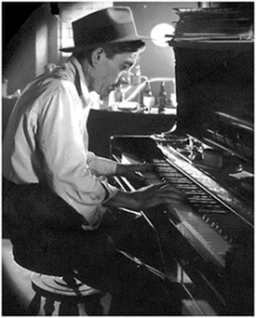
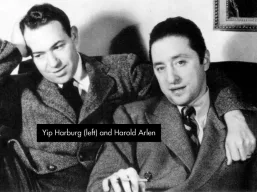
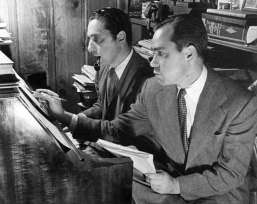



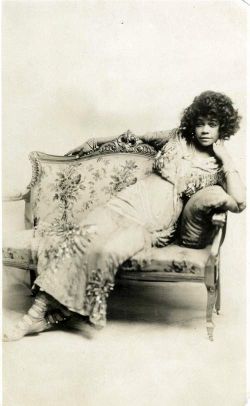





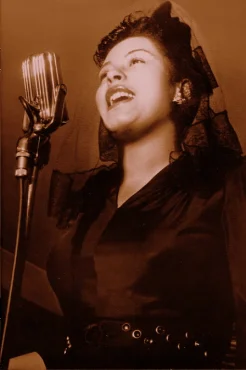




Apr 24, 2017 @ 23:14:48
LikeLike
Nov 05, 2018 @ 21:42:34
LikeLike
Mar 18, 2019 @ 10:39:44
Of course you missed a number of other great protest songs, including Eric Burdon and the Animals: SKY PILOT, Buffie Ste. Marie (or Donvan): UNIVERSAL SOLDIER, and even The Monkees: LAST TRAIN TO CLARKSVILLE. To try and name them all would take forever, let alone find recordings of them all.
So thank you for your list, it was compelling.
I’m sorry to say Masters of War would not open where I am in Canada, but that is a problem consistent with many recordings on Word Press.
LikeLiked by 1 person
Mar 18, 2019 @ 15:07:46
Hey raw ~
True, the page contains only a brief selection of anti-war songs of the decade, but the aim wasn’t to be comprehensive. For years I’ve been expecting to hear from irate Country Joe & the Fish fans who can’t believe that anyone could omit “I’m-Fixin’-to-Die Rag” from such a list.
“Sky Pilot” was certainly considered. I like the song, but I think what happened was that it seemed that most of the YouTube videos featuring the song that I found appeared to be glamorizing combat pilots and airborne warfare. It looked like pro-military and pro-war factions had adopted the song as their own. That’s the last sort of thing I wanted to include in this page.
On the early Bob Dylan “Masters of War” recordings:
These are always getting disabled or removed by YouTube. I replaced the Gerdes Folk City recording today. The other one doesn’t play in the US either now, though it did when I inserted it. I’ll try to replace that one ASAP.
Cheers,
~ doc
LikeLike
Mar 18, 2019 @ 16:56:50
I am a big Country Joe fan, but at 69 years old I’ve heard the F-U-C-K chant enough times to be sick of it. The kids can have it. They’ll need it soon enough. I haven’t listened to Sky Pilot on You Tube of late, but I think I remember a good video or two. I can see where the religious would totally miss on the irony.
I’ve thought of more since I commented, but I’m sure you’ve thought of more since you wrote the post. Good work. And remember, They Can’t Take Away Our Music.
Last but not least is one I wrote some decades back, called Body-Bag Parade. Never published, because I cannot write music, I hope it never needs to be.
LikeLiked by 1 person
Mar 18, 2019 @ 20:15:09
The page was created six years ago, and I think I’ve only added a couple since then, maybe three. I may, one of these days, extend it to a two page feature, since it already has too many videos (21) for one page. If so, then there’ll be room for at least ten more, and “Sky Pilot” will be first on my list.
Don’t hesitate to make suggestions, but remember I’ll be the judge whether it joins the party. “Body-Bag Parade” sounds like an epitaph for the Nixon-Kissinger administration.
Regards,
doc
LikeLike
Mar 18, 2019 @ 20:54:10
Pretty much. You can find the lyrics at:
LikeLike
Oct 21, 2020 @ 10:51:39
Hi musicdoc1,
Did you ever check out the lyrics above? Just wondering what you thought of them?
LikeLike
Oct 23, 2020 @ 17:17:20
Hey rawgod,
Yes, I read it. A little too raw (god) for my tastes, rawgod.
LikeLike
Oct 24, 2020 @ 00:16:41
Would you have thought that in the late 60s, early 70s? Maybe, I don’t know you. But a good protest song should tear at your innards, don’t you think?
The Hedgehoppers Anonymous did Good News Week 1965 hit was a bit raw too, but people loved it, as did I, but I thought the tune was too catchy for it to really scare people.
Ah, but that is all in the past. A good protest song today would be about Trump winning a second term. Now that is scary.
LikeLike
Sep 24, 2022 @ 18:51:11
LikeLike
May 04, 2023 @ 12:32:26
LikeLike